 Relevancy and Engagement
maine.agclassroom.org
Relevancy and Engagement
maine.agclassroom.org
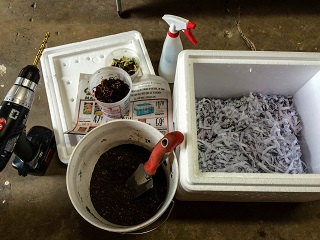
Make Your Own Worm Bin
Vermicomposting in your classroom is an effective way to engage students with a wide variety of science concepts. This activity will show you how to make your own worm bin out of a recycled styrofoam cooler. Prepare the cooler ahead of time, and then have students add the bedding, worms, and vegetable scraps.
Time to Complete
45 minutes
Materials
- Recycled styrofoam cooler
- Drill with large bit
- Shredded paper
- 2-3 full pages paper
- Soil
- Spray bottle filled with water
- Vegetable scraps
- Red wriggler worms
Procedures
- Drill ventilation holes in cooler lid. Have a vacuum cleaner handy—this can be messy!
- Fill cooler about half full with shredded paper.
- Wet shredded paper until it is uniformly damp but not dripping. It should feel like a well wrung-out towel.
- Mix soil with shredded paper. A couple scoops with a trowel is plenty. The soil should also be moist, but not muddy.
- Add worms on top and watch as they burrow down to get away from the light.
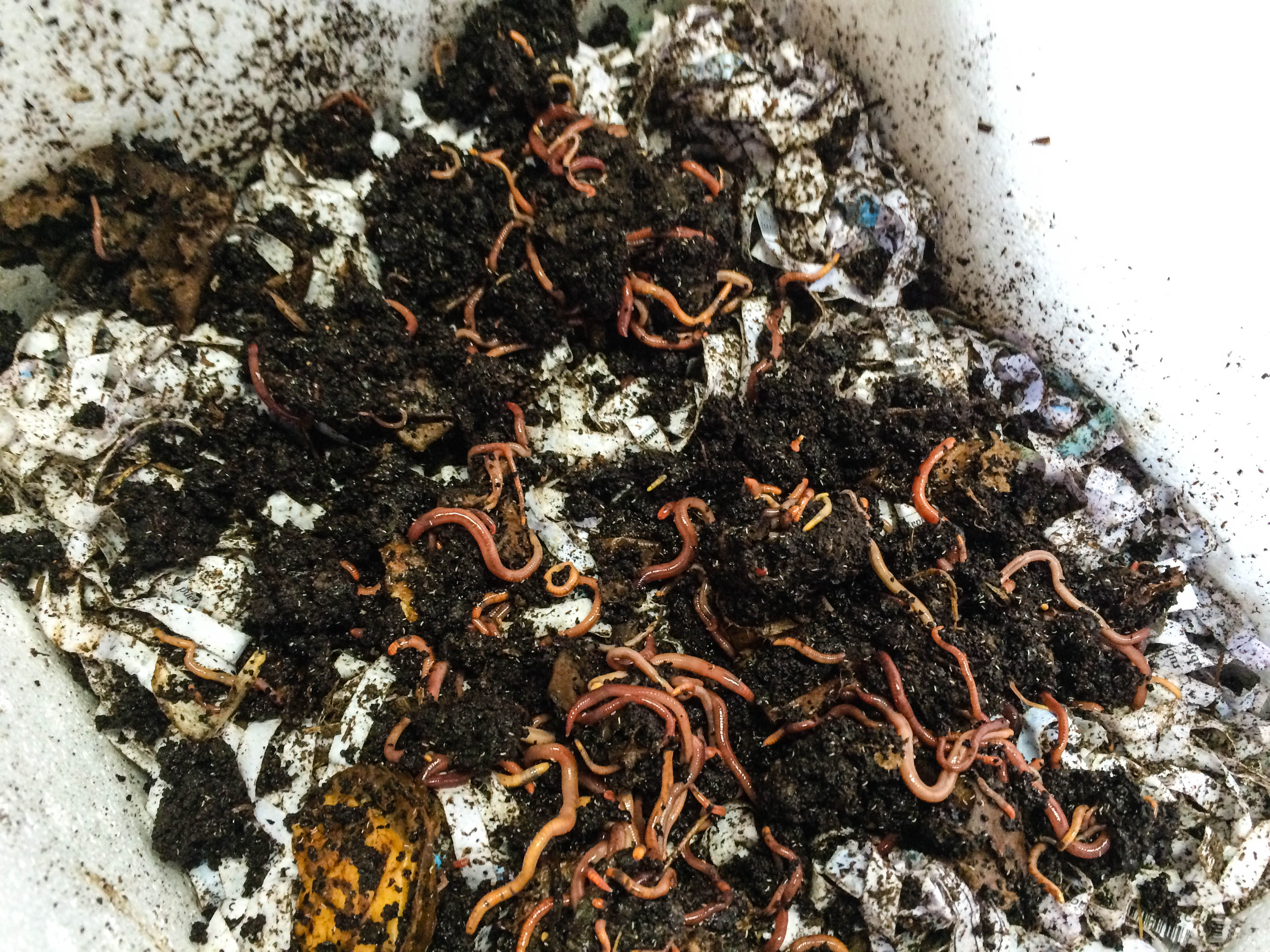
- Add vegetable scraps as food for the worms. Begin with one cup or less. It will take the worms some time to acclimate to their new home and develop an appetite.
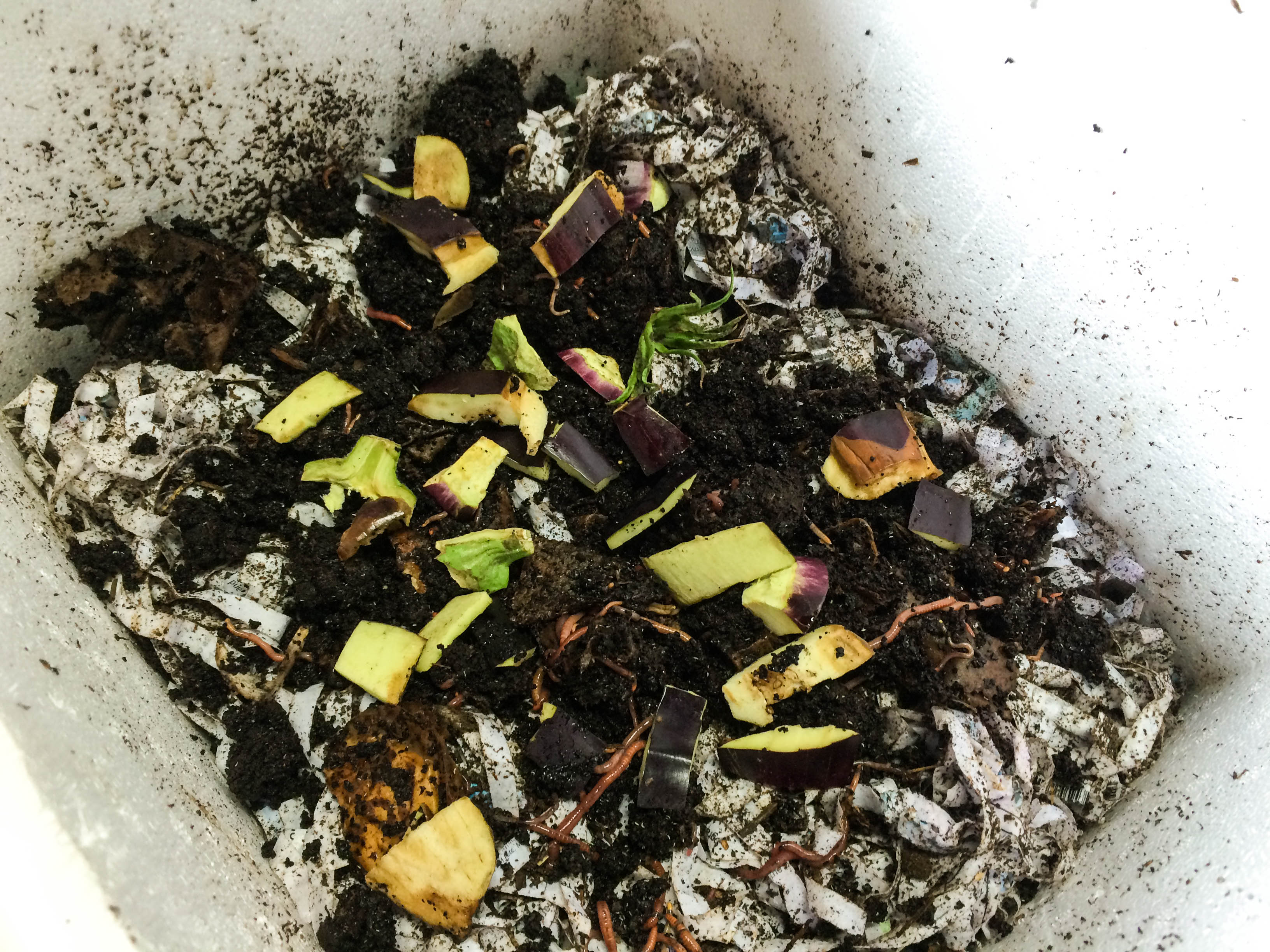
- Place full pages of paper on top and spritz with water until damp.
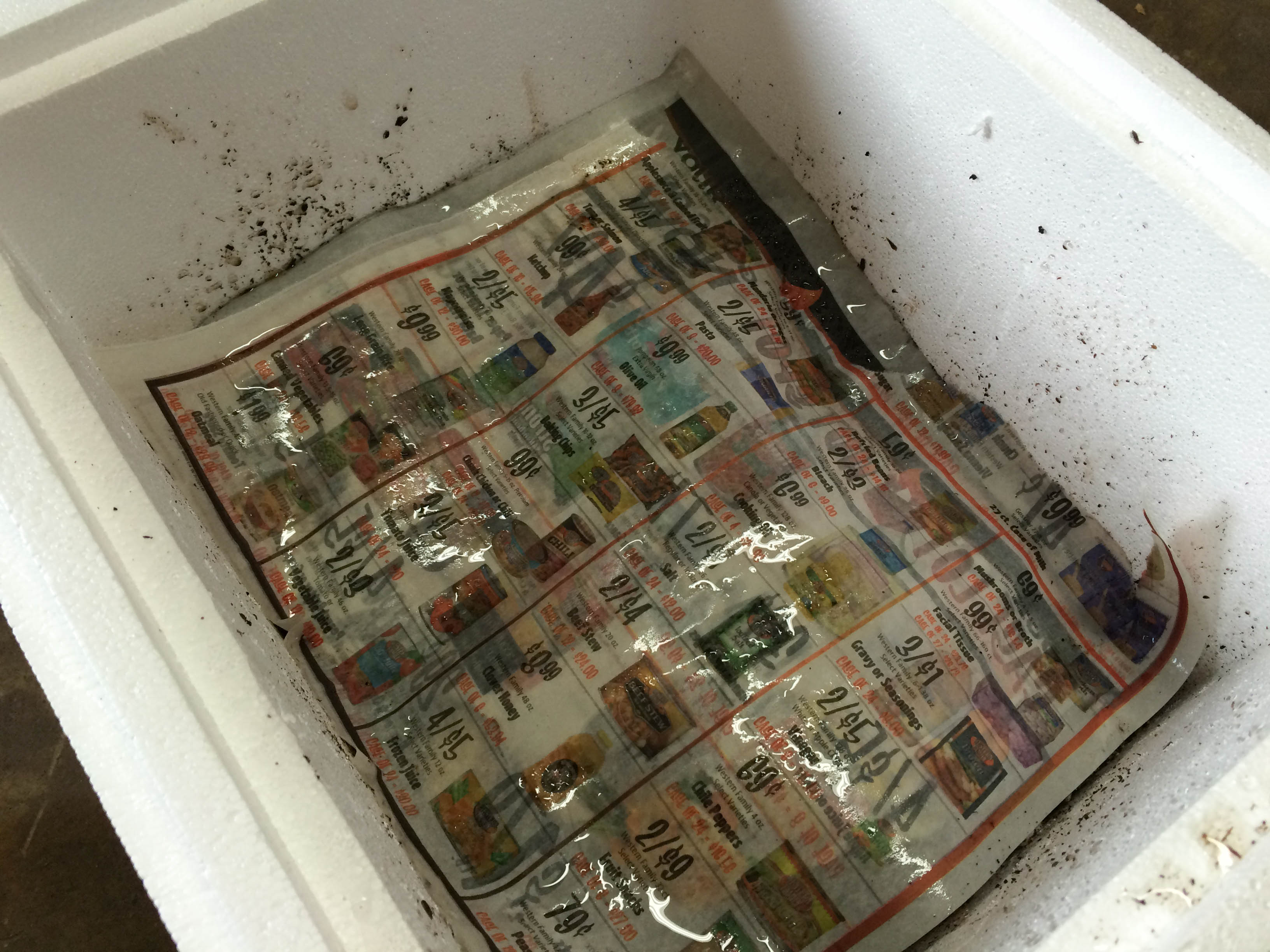
- Place lid on top and store bin where it won’t get too hot or too cold.
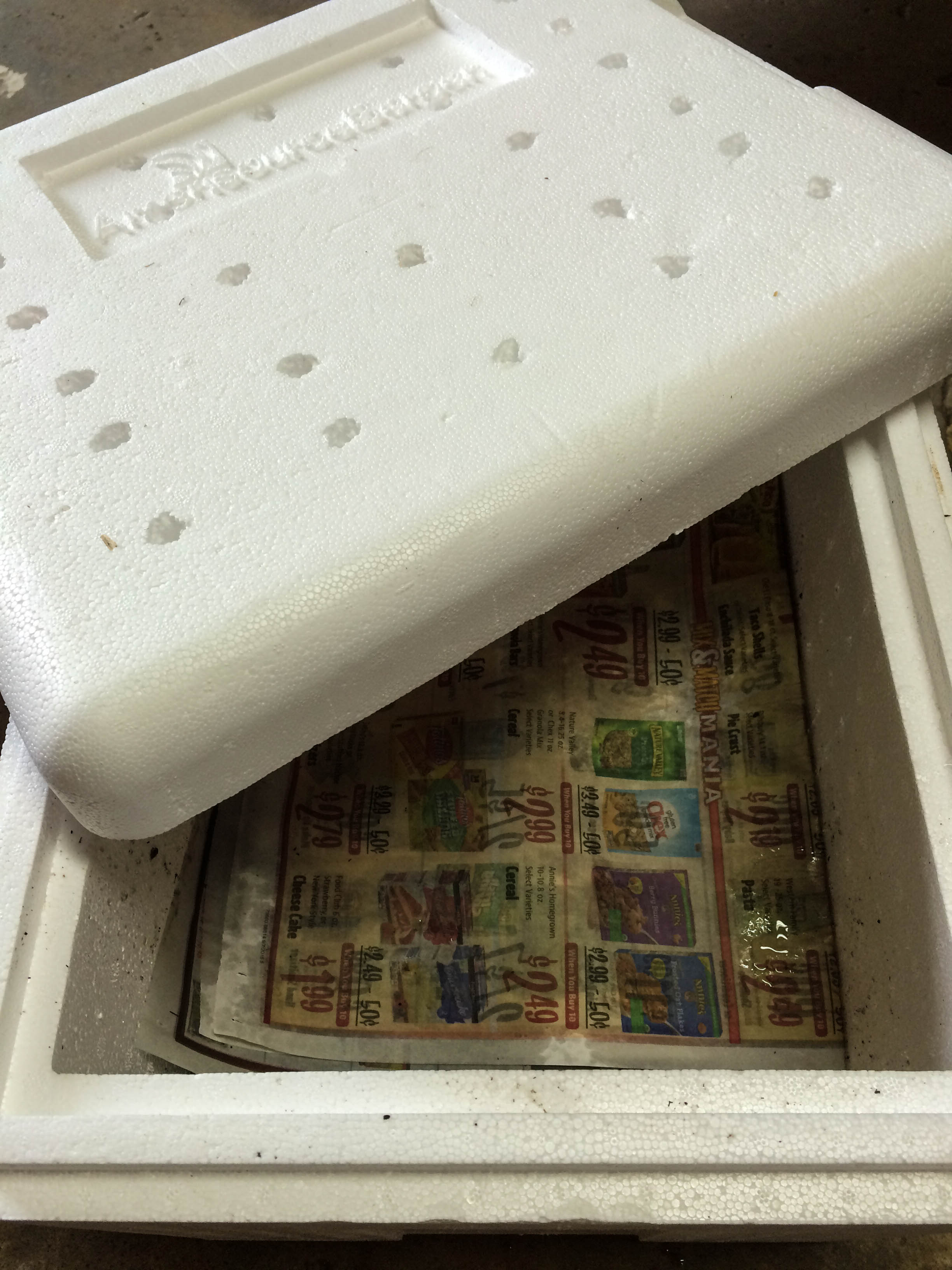
- Check moisture level regularly. The top sheets of paper will help keep the bin contents moist; when they get dry, spritz the upper layer of the bin with water. The worms need moisture to live, but the bin may begin to stink if it gets too wet. If this happens, simply add dry shredded paper to absorb excess moisture.
- Feed as needed. Worms can survive on paper alone but will also readily devour many other foods (e.g., carrot and potato peels, eggshells, used tea bags). Avoid overfeeding to prevent odors. As the population begins to grow, the worms will eat more.
- Use the link below to download a PDF of this activity guide, and visit the associated lessons for ways to connect this activity to curriculum.
Author
Sara Hunt
Organization
Utah Agriculture in the Classroom